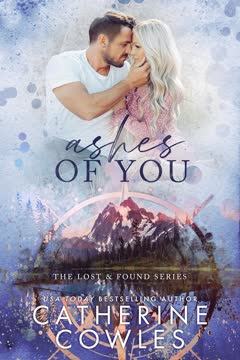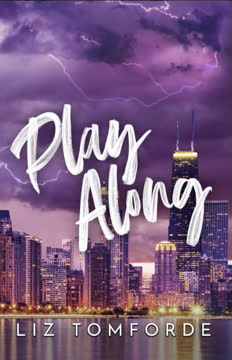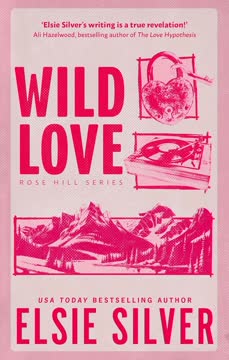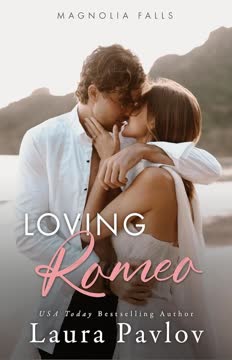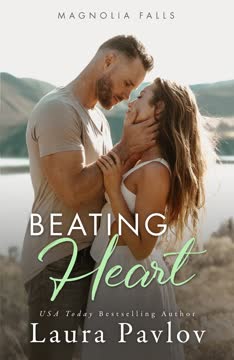Plot Summary
Return to the Lake
After a year away, Kate comes back to Elliott Springs, determined to win back her husband, Caleb, after rehab and a string of bad decisions. She finds the lake house he bought in her absence repulsive, but her hope is unwavering. The lake, with its brackish water and nosy neighbors, is a symbol of everything she wants to escape, yet also the only place she can imagine rebuilding her life. Her optimism is quickly shattered when she learns Caleb has moved on with Lucie, the sweet, younger neighbor. Kate's sense of displacement is immediate and profound, and the pain of being replaced is a fresh wound. Yet, even in her devastation, she clings to the hope that she can reclaim her old life, refusing to accept that her marriage is truly over.
Shattered Marriages, New Bonds
Caleb's relationship with Lucie is revealed to be serious, and Kate's return throws everyone into turmoil. Beck, Caleb's best friend and the local bar owner, is drawn into the drama as Kate seeks refuge with him. The small town buzzes with gossip, and old friends take sides. Beck, who has always had a complicated bond with Kate, is both wary and protective. The emotional landscape is fraught: Caleb is torn between guilt and new love, Lucie is anxious and insecure, and Kate is desperate, oscillating between hope and bitterness. The stage is set for a collision of past and present, as Kate's presence threatens the fragile happiness Caleb has found, and Beck's loyalty is tested.
Beck's Shelter, Kate's Struggle
Beck reluctantly allows Kate to stay with him, laying down strict rules: no drugs, and no interfering with Caleb and Lucie. Kate, still raw from rejection, is both grateful and resentful. The cabin is sparse and isolated, mirroring her internal emptiness. She battles cravings and loneliness, haunted by memories of her lost daughter and failed marriage. Beck's presence is both comfort and temptation; their banter is laced with unresolved tension. Kate's attempts to rebuild her life are halting—job searches go nowhere, and the specter of relapse looms. Yet, in Beck's gruff care, she finds a sliver of stability, even as she plots to win Caleb back.
Ghosts of the Past
The loss of her daughter, Hannah, is a wound that never heals. Kate's grief is compounded by guilt—she blames herself for every misstep, every moment that might have changed the outcome. The storage unit where Hannah's things are kept becomes a shrine to her pain. Beck, who witnessed her suffering firsthand, is the only one who understands the depth of her loss. Their shared history is a tapestry of trauma and resilience. As Kate confronts her past, she is forced to reckon with the choices that led her here, and the possibility that some wounds may never fully close.
Temptations and Triggers
Kate's sobriety is fragile, threatened by boredom, isolation, and the constant reminders of what she's lost. The town is full of triggers—old dealers, familiar routines, and the ever-present ache for oblivion. Beck's rules are both a lifeline and a source of resentment. Kate's attempts to fill the void—cooking, cleaning, stalking Lucie online—are desperate distractions. The temptation to sabotage Lucie and Caleb's relationship grows, fueled by jealousy and a need to reclaim control. Yet, every small victory is undercut by the looming threat of relapse, and the knowledge that one misstep could undo all her progress.
The Evil Queen's Schemes
Embracing her self-styled role as the "evil queen", Kate orchestrates subtle attacks on Lucie—targeted ads, rumors, and alliances with disgruntled ex-employees. Her intelligence and ruthlessness are on full display, but so is her desperation. The schemes are a way to channel her pain, to feel powerful in a world where she's lost so much. Yet, each act of sabotage distances her further from the person she wants to become. Beck sees through her bravado, challenging her to confront the emptiness beneath her machinations. The line between villain and victim blurs, as Kate's actions threaten to destroy not just Lucie, but herself.
Beck's Rules, Kate's Defiance
The tension between Beck and Kate simmers, fueled by proximity and shared history. Beck's rules—meant to protect them both—become points of contention. Kate chafes under his authority, pushing boundaries in small and large ways. Their banter turns flirtatious, then incendiary. A night swim, a shared bed, a kiss that lingers too long—each moment brings them closer to a line they both fear to cross. The chemistry is undeniable, but so are the risks. For Beck, loyalty to Caleb and fear of repeating old mistakes hold him back. For Kate, the possibility of happiness is as terrifying as the certainty of pain.
The Weight of Grief
As Hannah's birthday approaches, Kate is consumed by grief. The rituals of remembrance—visiting the grave, reading old letters—are both solace and torment. Beck is steadfast, offering comfort without judgment, but even he cannot reach the depths of her sorrow. The anniversary becomes a crucible, forcing Kate to confront the reality that some losses are permanent, and that moving forward does not mean forgetting. The community rallies around her in small ways, but the isolation of grief is profound. In the aftermath, Kate must decide whether to let her pain define her, or to seek a new path.
Sabotage and Self-Sabotage
Kate's schemes against Lucie escalate, drawing in Jeremy, Lucie's manipulative ex-husband. The plan to frame Lucie for drug possession is a moral nadir, and even Kate is unsettled by how far she's willing to go. Meanwhile, her relationship with Beck reaches a breaking point—jealousy, miscommunication, and old wounds flare. A night of passion becomes a source of guilt and confusion. Both are haunted by the sense that they are repeating old patterns, sabotaging the very happiness they crave. The fallout is swift: trust is broken, and Kate is once again adrift, her self-destructive tendencies threatening to consume her.
Lines Crossed, Hearts Broken
The simmering attraction between Beck and Kate finally erupts, but the aftermath is messy and painful. Their connection is undeniable, but so are the consequences. Beck's loyalty to Caleb, Kate's unresolved feelings, and the weight of their shared history make intimacy fraught. Misunderstandings and pride keep them apart, even as they both ache for reconciliation. The community's judgment, and their own self-recrimination, create barriers that seem insurmountable. In the wreckage of their affair, both must confront what they truly want—and what they are willing to risk to have it.
The Edge of Relapse
Rejected by Beck and alienated from her old life, Kate teeters on the brink of relapse. The lure of oblivion is stronger than ever, and the old patterns beckon. A visit to her dealer is a moment of reckoning—she is offered the chance to surrender, to let go of the pain and responsibility. But something has shifted: the fantasy of escape is no longer enough. Kate chooses, painfully, to walk away, seeking help at a meeting instead. It is a small victory, but a crucial one. The path to healing is not linear, but for the first time, Kate chooses life over numbness.
Reckonings and Realizations
In the aftermath of her near-relapse, Kate begins the slow work of making amends. She exposes Jeremy's plot against Lucie, choosing integrity over vengeance. Conversations with her estranged family bring closure to old wounds. She confronts the reality of her past, accepting responsibility without self-flagellation. Beck, too, is forced to reckon with his own patterns—his fear of vulnerability, his tendency to retreat when hurt. Both realize that forgiveness—of self and others—is the only way forward. The process is messy and incomplete, but it marks a turning point.
Letting Go of Ghosts
Kate's journey comes full circle as she lets go of the fantasies that have held her captive—of reclaiming Caleb, of undoing Hannah's death, of being the person she once was. She finds new purpose in her work, new connections with friends and family, and a tentative hope for the future. Beck sells the bar, ready to pursue a life that is his own. Their paths, once parallel but separate, begin to converge. The ghosts of the past are not banished, but they no longer dictate the terms of her life.
Choosing Love, Choosing Life
Kate and Beck, both changed by loss and struggle, choose each other—not as a consolation, but as a conscious act of hope. Their reunion is hard-won, built on honesty and mutual respect. The proposal is simple, but the commitment is profound: to build a life together, to risk loving and losing, to be present for each other in all their imperfection. The future is uncertain, but for the first time, both are willing to embrace it fully. The story that began with brokenness ends with the possibility of wholeness.
Forgiveness and New Beginnings
The epilogue finds Kate and Beck married, expecting a child, and surrounded by a chosen family. The scars of the past remain, but they are no longer wounds. Kate's journey from self-destruction to self-acceptance is mirrored in Beck's transformation from isolation to connection. Together, they create a home that is imperfect but real—a testament to the power of forgiveness, resilience, and love. The summer that began with loss ends with the promise of new life, and the knowledge that happiness, though fragile, is worth fighting for.
Full Circle: Family Found
The final chapter is a celebration of found family—of the people who choose us, and whom we choose in return. Kate, once convinced she was unlovable, is embraced by a community that sees her worth. Beck, who feared vulnerability, finds strength in connection. Their daughter's birth is both a culmination and a beginning—a symbol of hope, healing, and the enduring power of love. The story closes not with a fairy-tale ending, but with the hard-won joy of two people who have learned to live, and love, in the present.
Characters
Kate Bennett
Kate is a woman marked by trauma, addiction, and loss. Her fierce intelligence and biting wit are both armor and weapon, shielding her from a world that has repeatedly failed her. Her relationship with Caleb is defined by passion and pain, while her bond with Beck is rooted in shared suffering and unspoken longing. Kate's journey is one of self-destruction and self-discovery—she sabotages others and herself, driven by grief and a desperate need for control. Yet, beneath her cynicism lies a profound capacity for love and resilience. Her arc is one of hard-won growth: learning to forgive herself, to accept help, and to choose life over oblivion. Her relationships—with Beck, Caleb, Lucie, and her lost daughter—are the crucible in which she is transformed.
Beck (Jacob Beck)
Beck is the archetype of the gruff, loyal guardian—physically imposing, emotionally reserved, and fiercely protective of those he loves. His friendship with Caleb is foundational, but complicated by his feelings for Kate. Beck's own history is marked by loss—his mother's death, the burden of the family bar, and the weight of unfulfilled dreams. He is drawn to Kate's chaos, both repelled and fascinated by her darkness. His journey is one of learning to risk vulnerability, to move beyond duty and into genuine connection. Beck's love for Kate is steadfast, but not without limits; he demands honesty and growth, refusing to be a consolation prize. His transformation is from isolation to intimacy, from self-sacrifice to self-fulfillment.
Caleb Lowell
Caleb is the golden boy—successful, charming, and outwardly put-together. His marriage to Kate is passionate but volatile, undone by tragedy and addiction. Caleb's need for control and order is both strength and flaw; he is ill-equipped to handle chaos, and his retreat into work is a form of self-protection. His relationship with Lucie offers the promise of a simpler, more manageable happiness, but is shadowed by guilt and unresolved feelings for Kate. Caleb's arc is one of letting go—of the past, of responsibility for Kate, and of the illusion that he can fix everything. His ultimate act of love is to step aside, allowing both himself and Kate the chance to heal.
Lucie
Lucie is the embodiment of everything Kate is not—sweet, nurturing, and seemingly uncomplicated. Her relationship with Caleb is a source of both comfort and anxiety; she is acutely aware of Kate's shadow, and her own insecurities are easily exploited. Lucie's role as a mother is central to her identity, and her vulnerability is both her strength and her weakness. She is a foil to Kate, but not a villain; her struggles are real, and her desire for happiness is genuine. Lucie's arc is one of learning to assert herself, to trust in her own worth, and to navigate the complexities of blended families and second chances.
Jeremy Boudreau
Jeremy is Lucie's ex-husband and a master of emotional manipulation. His charm is superficial, masking a deep-seated need for control and revenge. Jeremy's schemes—framing Lucie, exploiting Kate's vulnerabilities—are driven by ego and entitlement. He is a catalyst for much of the novel's conflict, drawing out the worst in those around him. Yet, his power is ultimately limited by his own pettiness and lack of self-awareness. Jeremy's presence forces other characters to confront their own boundaries and moral limits.
Ann
Ann is Kate's sponsor and confidante, a steady presence in the storm of Kate's life. Her wisdom is hard-won, and her patience is both a comfort and a challenge. Ann's role is to hold Kate accountable, to remind her of the possibility of change, and to offer unconditional support. She is a surrogate mother, a guide, and a mirror—reflecting both Kate's progress and her blind spots. Ann's influence is subtle but profound, shaping the trajectory of Kate's recovery.
Rachel
Rachel is Beck's friend and a source of warmth and stability. Her pregnancy and the birth of her daughter, Jane, are symbols of renewal and the possibility of joy after loss. Rachel's friendship with Kate is a model of healthy connection—supportive, honest, and nonjudgmental. She is a reminder that happiness is possible, even after trauma, and that family can be chosen as well as inherited.
Hannah
Hannah, Kate and Caleb's deceased daughter, is the novel's emotional center. Her loss is the wound that shapes every character's journey. Hannah is both memory and aspiration—a symbol of innocence lost, and of the hope that endures in the face of tragedy. Her presence haunts Kate, driving her to both self-destruction and self-renewal. The process of grieving Hannah is the crucible in which Kate's transformation is forged.
Wyatt
Wyatt is a former colleague of Caleb's, notable for his lack of self-awareness and inappropriate advances. He serves as a reminder of the dangers of mediocrity and entitlement, and as a foil to the more complex male characters. Wyatt's interactions with Kate are both humorous and unsettling, highlighting the challenges women face in professional and personal spheres.
Kayleigh
Kayleigh is a social media-obsessed former receptionist, emblematic of the performative aspects of modern life. Her alliance with Kate is opportunistic, driven by mutual resentment of Lucie. Kayleigh's character is a commentary on envy, insecurity, and the ways in which women are pitted against each other. She is both a tool and a warning—a reminder that not all alliances are built on trust.
Plot Devices
Dual Narration and Shifting Perspectives
The novel employs a dual narrative structure, alternating between Kate and Beck's points of view. This allows for a deep exploration of their internal landscapes—their fears, desires, and rationalizations. The shifting perspectives create dramatic irony, as readers are privy to misunderstandings and secrets that the characters themselves cannot see. This device heightens tension and empathy, drawing readers into the emotional heart of the story.
Foreshadowing and Symbolism
The recurring motif of the locket, the lake, and the storage unit serve as symbols of loss, memory, and the possibility of renewal. Foreshadowing is used to build suspense—Kate's near-relapses, the anniversary of Hannah's death, and the escalating schemes against Lucie all signal impending crises. These devices ground the narrative in a sense of inevitability, while also offering hope for transformation.
The "Evil Queen" Persona
Kate's embrace of the "evil queen" identity is both a plot device and a psychological shield. It allows her to justify her actions, to distance herself from vulnerability, and to reclaim agency in a world that has rendered her powerless. This persona is both empowering and isolating, driving much of the novel's conflict and character development.
The Cycle of Sabotage and Redemption
The novel is structured around cycles of sabotage—of relationships, of self, of others—and the subsequent quest for redemption. Each act of destruction is both a cry for help and a test of resilience. The process of making amends, of seeking forgiveness, is depicted as arduous but essential. This cyclical structure mirrors the realities of addiction and recovery, emphasizing that progress is rarely linear.
The Chosen Family Trope
The theme of found family is central to the novel's resolution. Kate's journey from isolation to connection is mirrored in the community that rallies around her—Beck, Rachel, Ann, and others. The chosen family trope is a counterpoint to the failures of biological family, offering hope that belonging is possible, even for those who have been repeatedly abandoned.
Analysis
Elizabeth O'Roark's The Summer You Found Me is a raw, unflinching exploration of grief, addiction, and the messy, nonlinear path to healing. At its core, the novel is about the search for belonging—how trauma can isolate us, and how love, in its many imperfect forms, can bring us back to life. The story refuses easy redemption: Kate's journey is marked by self-sabotage, moral ambiguity, and the constant threat of relapse. Yet, it is also a testament to resilience—the idea that even the most broken among us can find hope, forgiveness, and connection. The novel interrogates the myths we tell ourselves about love, family, and recovery, exposing the dangers of nostalgia and the necessity of letting go. Through its complex characters and deft use of narrative devices, The Summer You Found Me offers a modern meditation on the costs and rewards of vulnerability. It reminds us that happiness is not a destination, but a choice made daily, in the face of uncertainty and pain. Ultimately, the book is a celebration of second chances—not as a return to what was lost, but as the courage to build something new.
Last updated:
Review Summary
The Summer You Found Me received mixed reviews, with an average rating of 3.93 out of 5. Many readers praised the complex characters, emotional depth, and angst-filled romance between Kate and Beck. Some found Kate's character development compelling, while others struggled to like her. The forbidden love and redemption themes resonated with fans. Critics noted the heavy subject matter and potential triggers. Audiobook narration was highly praised. Overall, readers appreciated O'Roark's writing style and ability to evoke strong emotions.





